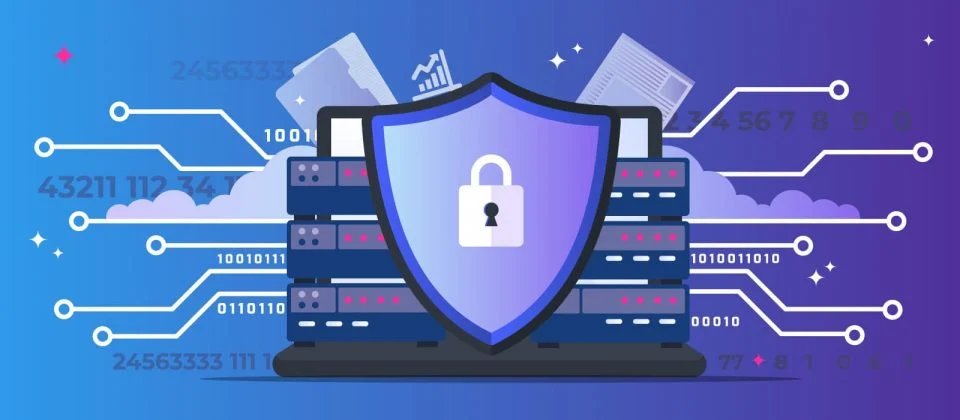How Blockchain Software Is Redefining Data Security by providing a decentralized and tamper-proof system for storing and sharing information. Blockchain technology ensures that data is secure and cannot be altered without the consensus of the network, making it an ideal solution for maintaining the integrity and confidentiality of sensitive information.
The emergence of blockchain software has revolutionized data security by introducing innovative methods for protecting digital assets. This technology utilizes cryptographic techniques to secure data, creating a transparent and immutable ledger that enhances trust and eliminates the risk of unauthorized access or manipulation. As a result, organizations are increasingly turning to blockchain solutions to safeguard their data from cyber threats and unauthorized breaches.
One of the key advantages of blockchain software in redefining data security is its ability to provide a decentralized and distributed network for data storage. This eliminates the reliance on a single point of failure, making it extremely difficult for malicious actors to compromise the security of the data. Additionally, the use of smart contracts and consensus algorithms further enhances the security measures, ensuring that only authorized parties can access and modify the data.
Another aspect that sets blockchain software apart in redefining data security is its transparency and traceability. Every transaction or data modification is recorded on the blockchain, creating an immutable audit trail that can be verified by all participants. This level of transparency not only enhances trust but also serves as a deterrent to potential security breaches, as any unauthorized activity would be immediately identified and addressed.
Furthermore, blockchain software is redefining data security by enabling secure and efficient data sharing among multiple parties. Through the use of permissioned blockchains, organizations can establish secure channels for sharing sensitive information without compromising its integrity. This not only streamlines processes and reduces the risk of data leakage but also ensures that data remains protected throughout its lifecycle.
In conclusion, the advent of blockchain software has significantly transformed the landscape of data security, offering innovative solutions to address the growing challenges of protecting sensitive information. Its decentralized nature, transparency, and secure data sharing capabilities make it a powerful tool for redefining data security in today’s digital age.
1. Introduction to Blockchain Technology
Blockchain technology is a decentralized, distributed ledger system that securely records transactions across many computers. Each block in the chain contains a number of transactions, and every time a new transaction occurs, a new block is added to the chain. This creates a secure and transparent record of transactions that is nearly impossible to alter or hack.
Blockchain technology is best known for its use in cryptocurrencies like Bitcoin, but its applications go far beyond just digital currencies. It has the potential to revolutionize data security, supply chain management, voting systems, and much more.
2. How Blockchain Ensures Data Security
One of the key features of blockchain technology is its use of cryptographic techniques to secure the data stored within the blocks. Each block contains a unique hash, which is a cryptographic code generated by an algorithm. If the data within the block is altered in any way, the hash changes, alerting the network to the tampering.
Additionally, because the blockchain is a distributed ledger, meaning it exists on multiple computers across a network, it is extremely difficult for hackers to compromise the data. In order to alter the data, a hacker would need to gain control of at least 51% of the network, which is nearly impossible in a large and well-established blockchain network.
3. Use Cases for Blockchain in Data Security
Blockchain technology has numerous potential applications for enhancing data security. For example, it can be used to create secure and transparent voting systems, where each vote is recorded on the blockchain and cannot be tampered with. It can also be used to create secure digital identities, where personal data is stored on the blockchain and can only be accessed with the user’s permission.
Supply chain management is another area where blockchain can improve data security. By recording the journey of a product on the blockchain, from its origin to its final destination, companies can ensure the authenticity and integrity of their products, reducing the risk of counterfeit goods entering the market.
4. The Impact of Blockchain on Traditional Data Security Methods
Traditional data security methods, such as centralized databases and password protection, have long been the go-to solutions for securing sensitive information. However, blockchain technology is challenging the status quo by offering a more secure and transparent alternative. With blockchain, there is no single point of failure, as the data is distributed across the network, making it much harder for hackers to breach.
Additionally, blockchain’s use of cryptographic techniques and consensus algorithms provides a level of security that is unparalleled by traditional methods. As a result, many industries are starting to explore the potential of integrating blockchain technology into their data security strategies.
5. Challenges and Limitations of Blockchain in Data Security
While blockchain technology offers numerous benefits for data security, it is not without its challenges and limitations. One of the main challenges is scalability, as the process of validating and adding new blocks to the chain can be slow and resource-intensive. This can be a barrier to widespread adoption, especially in industries that require high transaction throughput.
Another limitation is the potential for regulatory and legal hurdles, as the decentralized nature of blockchain can conflict with existing data protection laws and regulations. Additionally, the energy consumption of blockchain networks, particularly proof-of-work based systems like Bitcoin, has raised concerns about the environmental impact of widespread blockchain adoption.
6. The Future of Blockchain in Data Security
Despite the challenges and limitations, the future of blockchain in data security looks promising. As the technology continues to evolve, solutions to scalability and energy consumption are being developed, making blockchain more viable for widespread adoption. Additionally, as more industries recognize the potential of blockchain for enhancing data security, we can expect to see increased investment and innovation in this space.
Furthermore, as regulatory frameworks catch up to the rapid pace of blockchain development, we can expect to see clearer guidelines and standards for integrating blockchain into data security strategies. With these advancements, blockchain has the potential to redefine data security and become a cornerstone of secure and transparent digital infrastructures.
7. The Role of Blockchain Software in Redefining Data Security
Blockchain software plays a crucial role in redefining data security by providing the infrastructure for creating and managing secure, decentralized networks. Through blockchain software, developers can build and deploy applications that leverage the security and transparency of blockchain technology to secure sensitive data and transactions.
Blockchain software also enables the development of smart contracts, which are self-executing contracts with the terms of the agreement directly written into code. These smart contracts can automate and enforce the execution of agreements, further enhancing the security and efficiency of data management and transactions.
8. The Integration of Blockchain Software into Existing Data Security Infrastructure
Many organizations are exploring the integration of blockchain software into their existing data security infrastructure to enhance the protection of sensitive information. By leveraging blockchain software, companies can create secure, immutable records of transactions and data movements, reducing the risk of data tampering and unauthorized access.
Additionally, the use of blockchain software can streamline and automate data security processes, reducing the need for manual intervention and oversight. This can lead to cost savings and improved operational efficiency, while also strengthening the overall security posture of the organization.
9. The Advantages of Blockchain Software for Data Security
Blockchain software offers several key advantages for data security, including transparency, immutability, and decentralization. By leveraging blockchain software, organizations can create a transparent and tamper-proof record of data and transactions, providing greater visibility and accountability across the network.
Furthermore, the decentralized nature of blockchain software reduces the risk of a single point of failure, as the data is distributed across the network. This enhances the resilience of the data security infrastructure and reduces the potential impact of security breaches or system failures.
10. The Future Development of Blockchain Software for Data Security
Looking ahead, the development of blockchain software for data security is expected to continue at a rapid pace, driven by the growing demand for secure and transparent data management solutions. As the technology matures, we can expect to see advancements in scalability, interoperability, and user-friendly interfaces, making blockchain software more accessible and practical for a wide range of industries.
Furthermore, the integration of advanced cryptographic techniques and consensus algorithms into blockchain software will further enhance its security capabilities, making it a powerful tool for protecting sensitive information in an increasingly digital world. With ongoing innovation and investment in blockchain software, the future of data security looks brighter than ever before.
Summary of How Blockchain Software Is Redefining Data Security
| Key Points | Explanation |
|---|---|
| Decentralization | Blockchain technology distributes data across multiple nodes, making it difficult for hackers to access and manipulate. |
| Immutable Records | Once data is added to the blockchain, it cannot be altered or deleted, ensuring the integrity and trustworthiness of the information. |
| Encryption | Transactions and data stored on the blockchain are secured using advanced cryptographic techniques, enhancing data security. |
| Smart Contracts | Self-executing contracts on the blockchain automate and enforce agreements, reducing the risk of fraud and manipulation. |
| Permissioned Access | Blockchain networks can be configured to control who can access and contribute to the data, improving privacy and security. |
Blockchain software is revolutionizing data security by introducing decentralized, immutable, and encrypted data storage, along with smart contracts and permissioned access. This technology offers a powerful solution to the challenges of securing sensitive information in a digital world.



